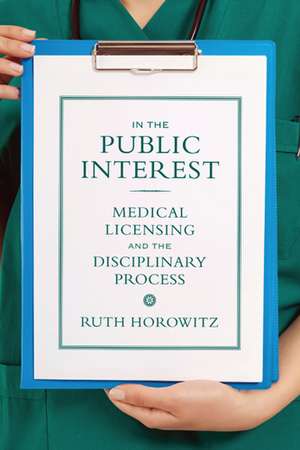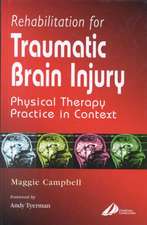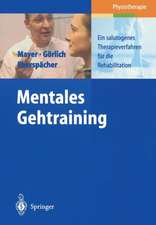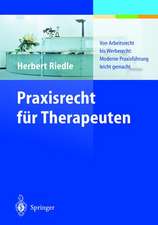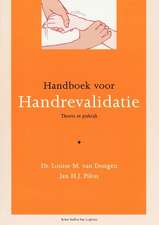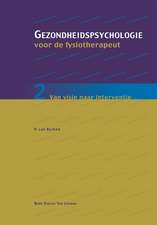In the Public Interest: Medical Licensing and the Disciplinary Process: Critical Issues in Health and Medicine
Autor Professor Ruth Horowitzen Limba Engleză Paperback – 27 dec 2012
Winner of the American Sociological Association Sociology of Law Section 2013 Outstanding Book Award
How do we know when physicians practice medicine safely? Can we trust doctors to discipline their own? What is a proper role of experts in a democracy? In the Public Interest raises these provocative questions, using medical licensing and discipline to advocate for a needed overhaul of how we decide public good in a society dominated by private interest groups. Throughout the twentieth century, American physicians built a powerful profession, but their drive toward professional autonomy has made outside observers increasingly concerned about physicians’ ability to separate their own interests from those of the general public.
Ruth Horowitz traces the history of medical licensure and the mechanisms that democratic societies have developed to certify doctors to deliver critical services. Combining her skills as a public member of medical licensing boards and as an ethnographer, Horowitz illuminates the workings of the crucial public institutions charged with maintaining public safety. She demonstrates the complex agendas different actors bring to board deliberations, the variations in the board authority across the country, the unevenly distributed institutional resources available to board members, and the difficulties non-physician members face as they struggle to balance interests of the parties involved.
In the Public Interest suggests new procedures, resource allocation, and educational initiatives to increase physician oversight. Horowitz makes the case for regulations modeled after deliberative democracy that promise to open debates to the general public and allow public members to take a more active part in the decision-making process that affects vital community interests.
How do we know when physicians practice medicine safely? Can we trust doctors to discipline their own? What is a proper role of experts in a democracy? In the Public Interest raises these provocative questions, using medical licensing and discipline to advocate for a needed overhaul of how we decide public good in a society dominated by private interest groups. Throughout the twentieth century, American physicians built a powerful profession, but their drive toward professional autonomy has made outside observers increasingly concerned about physicians’ ability to separate their own interests from those of the general public.
Ruth Horowitz traces the history of medical licensure and the mechanisms that democratic societies have developed to certify doctors to deliver critical services. Combining her skills as a public member of medical licensing boards and as an ethnographer, Horowitz illuminates the workings of the crucial public institutions charged with maintaining public safety. She demonstrates the complex agendas different actors bring to board deliberations, the variations in the board authority across the country, the unevenly distributed institutional resources available to board members, and the difficulties non-physician members face as they struggle to balance interests of the parties involved.
In the Public Interest suggests new procedures, resource allocation, and educational initiatives to increase physician oversight. Horowitz makes the case for regulations modeled after deliberative democracy that promise to open debates to the general public and allow public members to take a more active part in the decision-making process that affects vital community interests.
Din seria Critical Issues in Health and Medicine
-
 Preț: 254.52 lei
Preț: 254.52 lei -
 Preț: 232.10 lei
Preț: 232.10 lei - 5%
 Preț: 241.99 lei
Preț: 241.99 lei -
 Preț: 184.80 lei
Preț: 184.80 lei - 5%
 Preț: 241.78 lei
Preț: 241.78 lei - 5%
 Preț: 314.84 lei
Preț: 314.84 lei - 5%
 Preț: 292.69 lei
Preț: 292.69 lei - 5%
 Preț: 318.35 lei
Preț: 318.35 lei - 5%
 Preț: 311.37 lei
Preț: 311.37 lei - 5%
 Preț: 1077.15 lei
Preț: 1077.15 lei -
 Preț: 287.67 lei
Preț: 287.67 lei - 5%
 Preț: 270.90 lei
Preț: 270.90 lei -
 Preț: 315.48 lei
Preț: 315.48 lei - 5%
 Preț: 293.77 lei
Preț: 293.77 lei - 5%
 Preț: 427.88 lei
Preț: 427.88 lei - 5%
 Preț: 1078.40 lei
Preț: 1078.40 lei - 5%
 Preț: 296.39 lei
Preț: 296.39 lei - 5%
 Preț: 288.29 lei
Preț: 288.29 lei - 5%
 Preț: 298.62 lei
Preț: 298.62 lei -
 Preț: 304.61 lei
Preț: 304.61 lei - 5%
 Preț: 298.77 lei
Preț: 298.77 lei -
 Preț: 312.21 lei
Preț: 312.21 lei -
 Preț: 286.52 lei
Preț: 286.52 lei - 5%
 Preț: 276.52 lei
Preț: 276.52 lei - 5%
 Preț: 305.79 lei
Preț: 305.79 lei - 5%
 Preț: 1079.33 lei
Preț: 1079.33 lei - 5%
 Preț: 299.90 lei
Preț: 299.90 lei - 5%
 Preț: 290.87 lei
Preț: 290.87 lei - 5%
 Preț: 410.09 lei
Preț: 410.09 lei -
 Preț: 259.27 lei
Preț: 259.27 lei -
 Preț: 305.55 lei
Preț: 305.55 lei - 5%
 Preț: 262.95 lei
Preț: 262.95 lei - 5%
 Preț: 277.67 lei
Preț: 277.67 lei - 5%
 Preț: 301.72 lei
Preț: 301.72 lei - 5%
 Preț: 280.06 lei
Preț: 280.06 lei
Preț: 314.32 lei
Preț vechi: 330.86 lei
-5% Nou
Puncte Express: 471
Preț estimativ în valută:
60.16€ • 65.37$ • 50.57£
60.16€ • 65.37$ • 50.57£
Carte tipărită la comandă
Livrare economică 22 aprilie-06 mai
Preluare comenzi: 021 569.72.76
Specificații
ISBN-13: 9780813554266
ISBN-10: 0813554268
Pagini: 268
Dimensiuni: 152 x 229 x 18 mm
Greutate: 0.41 kg
Ediția:None
Editura: Rutgers University Press
Colecția Rutgers University Press
Seria Critical Issues in Health and Medicine
ISBN-10: 0813554268
Pagini: 268
Dimensiuni: 152 x 229 x 18 mm
Greutate: 0.41 kg
Ediția:None
Editura: Rutgers University Press
Colecția Rutgers University Press
Seria Critical Issues in Health and Medicine
Notă biografică
RUTH HOROWITZ is a professor of sociology at New York University. She is the author of Honor and the American Dream: Culture and Identity in a Chicano Community (Rutgers University Press) and Teen Mothers: Citizens or Dependents?
Cuprins
Acknowledgments
List of Abbreviations
Introduction
1 Public Member, Researcher, and Public Sociologist
2 How Licensure Became a Medical Institution
3 Public Participation
4 The State, the Media, and the Shaping of Public Opinion
5 Rhetorics of Law, Medicine, and Public Interest Shape Board Work
6 Medical and Legal Discourses in Investigatory Committees
7 Hearing and Sanction Deliberations
8 Democratic Deliberation and the Public Interest
Conclusion
Notes
References
Index
List of Abbreviations
Introduction
1 Public Member, Researcher, and Public Sociologist
2 How Licensure Became a Medical Institution
3 Public Participation
4 The State, the Media, and the Shaping of Public Opinion
5 Rhetorics of Law, Medicine, and Public Interest Shape Board Work
6 Medical and Legal Discourses in Investigatory Committees
7 Hearing and Sanction Deliberations
8 Democratic Deliberation and the Public Interest
Conclusion
Notes
References
Index
Recenzii
"In the Public Interest is a fascinating study and a remarkable achievement from one of the top sociological ethnographers working in the field."
"Ruth Horowitz has long been recognized as an acute ethnographer. This book announces her as a major public sociologist, investigating quality and justice in healthcare – for both patients and physicians."
"The body of scholarly literature devoted to the role and function of state medical boards is not especially deep. Accordingly, when a book appears adding to that body of literature scholars and the medical community cannot help but take note. This is particularly true with the publication of In the Public Interest. Horowitz is uniquely positioned to deliver thoughful analyses of medical boards' collective functioning from multiple perspectives, including that of public board member, educator, and sociologist. In the Public Interest contributes meaningful insight on all three counts."
"Ruth Horowitz has written an important and engaging appraisal of the present mechanisms available to monitor (and sanction) the work of physicians. She has performed an indispensible service to medical sociology about a subject that gets rare attention, much less observation. Every medical ethicist and sociologist should read this book."
"Horowitz deepens our understanding of the legislative processes and inner workings of medical societies. Descriptions of board conversations highlight the personal insecurities, cultural biases, and professional protectionism that must be overcome to take appropriate disciplinary action to prevent further harm to patients."
"One area where traditionally medical professionals have maintained tight control is in the disciplining of their own colleagues. In the Public Interest sheds light on this and a range of other issues through a study of the work of medical boards in the United States."
"This book contributes to the ongoing debate about the regulatory activities of the medical profession and offers an insight into the principles that inform public and patients' engagment."
"I hope that this wonderful book will reach a broader audience than the sociologists who will undoubtedly find much here to interest them. In the Public Interest is recommended reading for policy makers, especially those who are in a position to influence board processes and anybody interested in questions of the public interest more generally."
Descriere
In the Public Interest investigates the mechanisms that democratic societies have used to certify that those working as licensed doctors are properly trained and supervised as they deliver critical services to the public. It analyzes the workings of the crucial public institutions charged with maintaining the safety and legitimacy of the U.S. medical profession and provides prescriptive measures, addresses problems in need of reform, and suggests new procedures, resource allocation, and education in medical oversight.
